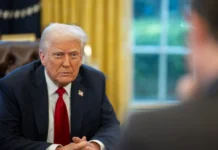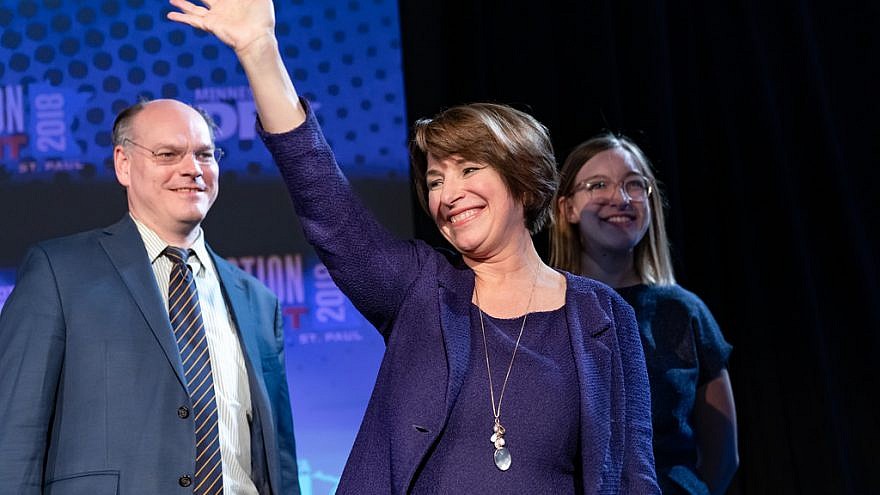Minnesota Sen. Amy Klobuchar became the second Democratic candidate for president in 2020 to pledge that, if elected, the U.S. embassy in Israel would remain in Jerusalem, where it was relocated from Tel Aviv in May 2018.
When asked by Jewish Insider whether she would move the embassy back to Tel Aviv, she replied, “No, I wouldn’t.”
Klobuchar joined Pete Buttigieg, the mayor of South Bend, Ind., who said last month that he too, if elected, wouldn’t undo U.S. President Donald Trump’s embassy decision.
“What’s done is done,” he told Axios in an interview aired by HBO.
“I don’t know that we’d gain much by moving it to Tel Aviv,” he said, adding that he felt that Trump made the wrong move in relocating it.
“Here’s the problem with what he did,” said the 37-year-old candidate. “[I]f you’re going to make a concession like that, if you’re going to give somebody something that they’ve wanted for a long time in the context of a push-pull, even with a strong ally like Israel, right? We have a push-pull relationship. And you don’t do that without getting some kind of concession. Instead, we’ve seen the Israeli government continue to act in ways that are detrimental to peace. And I believe, therefore, also detrimental to U.S. interests.”
Klobuchar declined to answer when asked by Jewish Insider if she would undo Trump’s decision to officially recognize the Golan Heights as part of Israel.
“I think it should be part of the negotiations,” she said, adding that “I think again while that isn’t about two-state solution, it’s better to have global discussion with America having a leading role.”
In his interview with Axios, Buttigieg echoed Klobuchar’s sentiment.
“Look, the Israeli claims in the Golan are not something to be ignored,” he said. “They have a lot to do with legitimate security interests, but when we did that, we were doing something that could have been part of a negotiated package, and instead we just gave it away.”
“Worse, we gave it away probably for the specific purpose of having an impact in Israeli domestic politics, which should be the last reason that we would be conducting U.S. foreign policy,” he continued. “It should be designed around American values, American interests and American international relationships.”


























